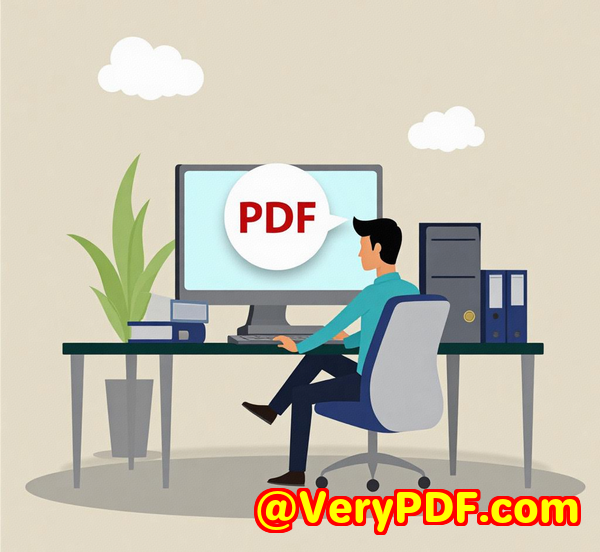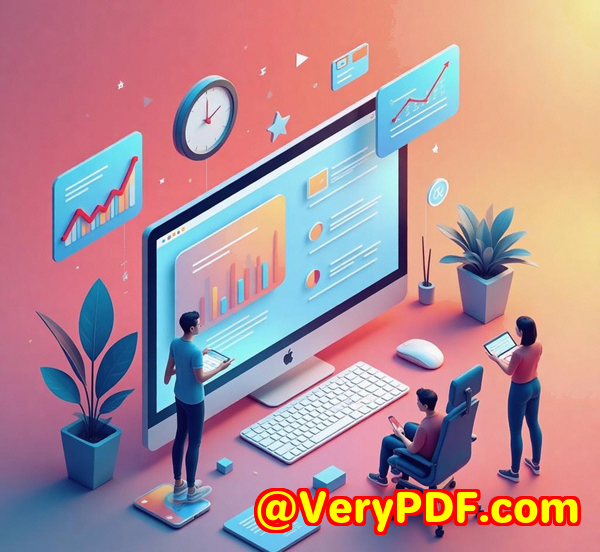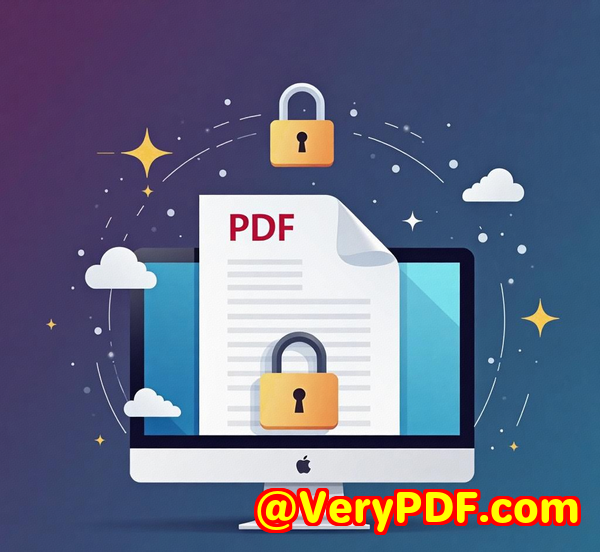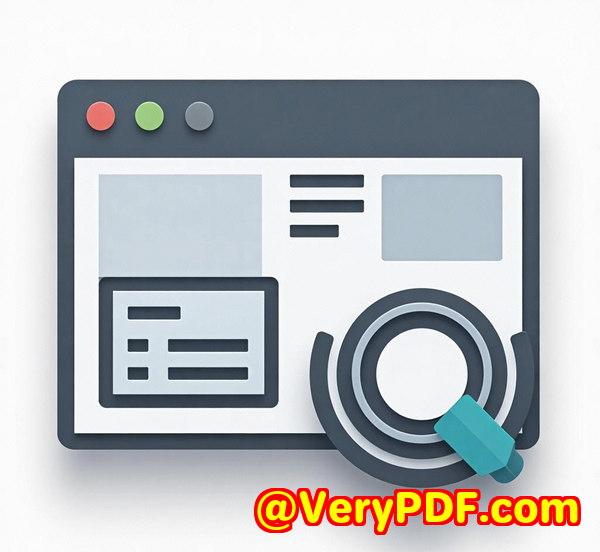Unlock the Full Potential of Your PDF Files Convert to Vector Graphics for Precision Scaling
Unlock the Full Potential of Your PDF Files: Convert to Vector Graphics for Precision Scaling
Meta Description:
Learn how to convert your PDF files into scalable vector graphics with the VeryDOC PDF to Vector Converter Command Line SDK, offering precision scaling and seamless integration.
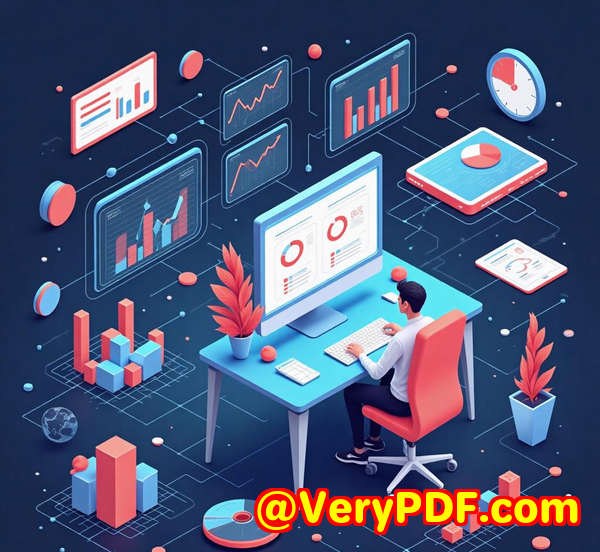
Are you tired of struggling with PDF files that don't scale well for your design, printing, or CAD projects?
If you've ever worked with PDFs for architectural blueprints, business diagrams, or scientific plots, you know the pain of losing image quality when resizing or printing. Whether it's graphics that become blurry or text that turns pixelated, these issues are a real headache. That's where vector graphics come into play, and more specifically, where the VeryDOC PDF to Vector Converter becomes your best friend.
Why Vector Graphics Matter
Vector graphics are the holy grail for scalability. Unlike raster images (think JPEGs or PNGs), vectors are resolution-independent. This means they can be scaled to any size without losing quality. This is crucial for applications like CAD design, printing, and anywhere precise graphics are needed.
But here's the catch: Most PDF files, while great for reading, aren't exactly made for scaling. You need a reliable tool to convert them into a vector format without messing up the quality. This is where VeryDOC's PDF to Vector Converter Command Line SDK comes in, helping you unlock the potential of your PDFs by converting them to scalable formats like SVG, EMF, WMF, EPS, and more.
The Solution: VeryDOC PDF to Vector Converter Command Line SDK
The VeryDOC PDF to Vector Converter Command Line SDK is a game-changer, offering a straightforward solution to convert your PDF files into high-quality, scalable vector formats. No need to install bulky software or worry about file compatibility. This SDK allows you to run conversions with ease through a command-line interface, which is a huge advantage for developers and anyone who needs to handle batch processing.
This tool can convert PDF documents to a variety of vector formats:
-
WMF: Windows Metafile
-
EMF: Enhanced Metafile
-
EPS: Encapsulated PostScript
-
SVG: Scalable Vector Graphics
-
SWF: Flash File Format
-
XPS: XML Paper Specification
-
PCL: Printer Command Language
-
HPGL: HP Graphics Language
All of these formats are industry standards and provide flexibility in the way your documents are processed and printed.
Features That Make a Difference
What sets this product apart from others? Let's dive into the key features that make it a top choice for businesses, developers, and design professionals.
1. No Need for Adobe Acrobat
Unlike other tools, the VeryDOC PDF to Vector Converter does not require Adobe Acrobat or Reader. This is a major time-saver and cost-effective, especially when working in environments where Adobe software is not available or practical.
2. Batch Conversion for Efficiency
Handling large volumes of PDF files? No problem. The tool supports batch conversions, making it ideal for processing hundreds or even thousands of PDFs simultaneously. This feature is indispensable for companies that deal with large sets of documents regularly.
3. Precision Scaling
One of the standout features of vector graphics is that they can be scaled without any degradation in quality. Whether you're working with architectural designs or high-resolution charts, the VeryDOC PDF to Vector Converter ensures that all converted files maintain perfect clarity and sharpness when resized.
4. Command Line and SDK Access
For developers, the command-line SDK is the cherry on top. You can easily integrate the converter into your existing workflow using languages like C#, .NET, PHP, Python, and more. Whether you're building a web application or integrating into a larger system, the VeryDOC PDF to Vector Converter plays nicely with your development environment.
5. Support for Protected PDF Files
Not all PDFs are straightforward. Some are protected by passwords, but that won't stop the VeryDOC PDF to Vector Converter. It supports converting password-protected PDFs, which is a huge relief if you're dealing with sensitive documents.
6. Multi-Format Output
You're not limited to just one vector format. The SDK allows you to choose from a wide variety of output formats, including SVG, EMF, WMF, and EPS. These formats are perfect for use in design applications, printing systems, or even as part of a digital asset management system.
Personal Experience: How I Use It
Let me share a personal experience. I was working on a project that involved converting a large set of architectural PDFs into scalable formats for a new building design. The challenge? The client needed the designs in SVG and EPS formats to import into their CAD system.
Initially, I tried using a couple of online tools, but the quality was disappointing. The lines were blurry, and the text wasn't as crisp as it should've been. That's when I decided to try the VeryDOC PDF to Vector Converter Command Line SDK.
The conversion process was seamless. I didn't have to worry about file size limitations or quality loss. The SVG files I generated were crystal clear, and I was able to zoom in without any pixelation. Not only that, but I was able to automate the whole process, saving me hours of manual work.
Ideal Use Cases for the PDF to Vector Converter
Here are a few scenarios where this tool truly shines:
1. CAD and Architecture
-
Problem: Architects need to convert PDF blueprints into vector files for design applications.
-
Solution: Convert architectural PDFs to EMF or SVG for perfect scaling and manipulation within CAD tools.
2. Scientific Publications
-
Problem: Scientists need to preserve the accuracy of graphs and charts when resizing.
-
Solution: Convert PDFs containing graphs to EPS or SVG, ensuring no loss in resolution when printed or embedded in papers.
3. Business Diagrams
-
Problem: Businesses often need to convert diagrams in PDFs into editable formats.
-
Solution: Convert business diagrams to WMF or EMF for use in presentations or publishing systems.
4. Map and Cartography
-
Problem: Cartographers need precise vector maps for further editing.
-
Solution: Convert scanned PDFs of maps into HPGL or SVG formats for easy manipulation in GIS applications.
Core Advantages of the VeryDOC PDF to Vector Converter
1. High-Quality Output
The conversion process retains the integrity of your documents, making it perfect for high-quality prints or detailed designs.
2. Flexibility
Choose from a wide variety of vector formats. Need something specific? It's covered.
3. Cost-Effective
Unlike some other tools that require expensive software or subscriptions, the VeryDOC PDF to Vector Converter offers a cost-effective solution that's especially appealing to developers and businesses looking to automate their workflows.
4. Powerful Command Line Interface
Developers, rejoice! You can automate and integrate PDF conversions with ease using the command-line SDK, which supports multiple programming languages.
5. Seamless Integration
Whether you're working with Windows, Linux, or macOS, the SDK integrates smoothly into your environment, allowing you to scale operations without breaking a sweat.
Conclusion: My Final Thoughts
The VeryDOC PDF to Vector Converter Command Line SDK is a tool I can confidently recommend. It's a must-have for anyone who works with PDF files on a regular basis and needs a reliable, scalable solution for converting them into high-quality vector formats. Whether you're a developer, designer, or business professional, this tool can help streamline your processes and improve the final quality of your work.
I've personally seen the difference it can make in productivity and output quality, and I'd highly recommend it to anyone who deals with large volumes of PDF documents and needs precision in scaling.
Start Your Free Trial Today
[Click here to try it out for yourself: https://www.verydoc.com/pdf-to-vector.html]
Start converting your PDFs to high-quality vector graphics now and experience the difference for yourself.
Custom Development Services by VeryDOC
VeryDOC offers comprehensive custom development services to meet your unique technical needs. Whether you require specialized PDF processing solutions for Linux, macOS, Windows, or server environments, VeryDOC's expertise spans a wide range of technologies and functionalities.
We specialise in creating Windows Virtual Printer Drivers capable of generating PDF, EMF, and image formats, as well as tools for capturing and monitoring print jobs.
If you have specific technical needs or require customized solutions, please contact VeryDOC through its support center at https://support.verypdf.com/ to discuss your project requirements.
FAQ
Q1: What formats can I convert my PDF files to using the VeryDOC PDF to Vector Converter?
A: You can convert your PDFs to WMF, EMF, EPS, SVG, SWF, XPS, HPGL, and PCL formats.
Q2: Do I need Adobe Acrobat to use the VeryDOC PDF to Vector Converter?
A: No, the VeryDOC PDF to Vector Converter works independently of Adobe Acrobat and Reader.
Q3: Can I automate the conversion process?
A: Yes, the command-line interface allows you to automate batch conversions for large volumes of PDFs.
Q4: Is the software available for both developers and businesses?
A: Yes, the software is available under both developer licenses and server licenses, making it ideal for integration into custom workflows or server
